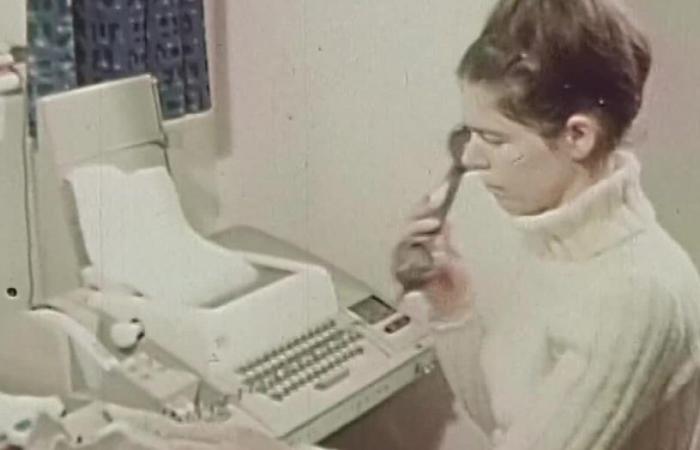While holding her daughter on her lap, Hilary Cropper explained how she came to the idea of working from home: “ Two years ago, when I had Elizabeth, I was very keen to continue my work, but I also wanted to be at home with the children and I realized that there were many other women like me who had acquired a lot of experience in computing, which was simply lost on everyone. »
Ms. Wharton, a computer scientist from home, presented her work device to the camera. “ In a few minutes, she will become an engineer again », assured the comment. And to describe: “ She asks to be put online with the computer. And suddenly, the small family home becomes a branch, an extension of the computing center of one of the largest IT firms in the world. Behind this modest window, what does he decide? The future of a scientific program based on calculation, the management of a factory, the launch of a new product. The family home is forgotten. She no longer exists. Mrs. Wharton is face-to-face with the computer ».
Advantages and disadvantages
Hilary Cropper looks back on the implementation of this system: “ It was a very new idea, the idea of working entirely alone by establishing a liaison and going on site only when necessary. And this is very rare in reality. So there was an initial hostility to overcome ».
If the system was a success, she nevertheless noted the difficulty in separating her private and professional life. “ This work invades the house in a way. You never know if someone isn’t going to call in the evening or during the day, anytime. And I feel like I’m always on the alert. »
A remark that is still relevant today, as teleworking has become widespread. Well-being economics researcher Claudia Senik notes in a recent article: “ Women, and particularly mothers of young children, place greater value on the possibility of teleworking. For them, it is obviously a question of trying to better reconcile family and professional constraints. However, all empirical studies conclude that working from home has a negative effect on their well-being “. And to conclude: “ These results confirm the greater porosity of professional and family spaces for women, that is to say the asymmetry of male and female roles. (…) Teleworking acts here as a revealer of the norms of division of labor between men and women. »






